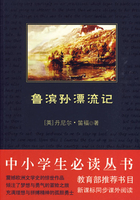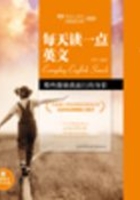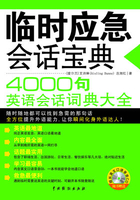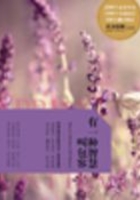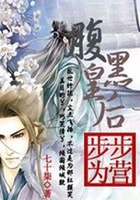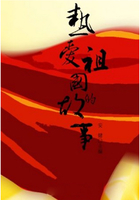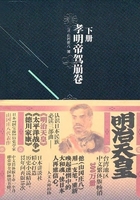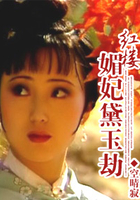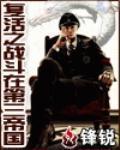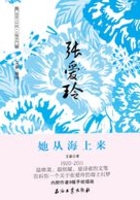I finally took a deferred pass, as they called it, and waited a year and tried again. (You had to pass one of the biological sciences or you couldn’t graduate.) The professor had come back from vacation brown as a berry, brightened, and eagered to explain cellstructure again to his classes. “Well,” he said to me, cheerily when we met in the fist laboratory hour of the term,“we’re going to see cells this time, aren’t we? ”“Yes, sir,” I said. Students to right of me and to left of me and in front of me were seeing cells, and what’s more, they were quietly drawing pictures of them on their notebooks. Of course, I didn’t see anything.
“We’ll try it,” the professor said to me grimly, “with every adjustment the microscope known to man. As God is my witness, I’ll arrange this glass so that you see cells through it or I’ll give up teaching. In 22 years of botany, I—” He cut off abruptly for he was beginning to quiver all over, like Lionel Barrymore.
So we tried it with every adjustment of the microscope known to man. With only one of them did I see anything but blackness or the familiar lacteal opacity, and that time I saw, to my pleasure and amazement, a variegated constellation of flecks, specks and dots. These I hastily drew. The instructor, noting my activity, came back from an adjoining desk, a smile on his lips and his eyebrows high in hope. He looked at my cell drawing. “What’s that?” He demanded, with a hint of squeal in his voice. “That’s what I saw,” I said. “You didn’t, you didn’t, you didn’t!” He screamed, losing control of his temper instantly, and he bent over and squinted into the microscope. His head snapped up. “That’s your eye!” He shouted. “You’ve fixed the lens so that it reflects! You’ve drawn your eye!”
我通过了大学里所有要修的课程,然而,植物学却怎么也无法通过。原因是这样的:在一周中,修植物学的学生总要在实验室中花几个小时,透过显微镜观察植物细胞,然而,我在显微镜里从来没有看见过任何东西。
我从来没有在显微镜中看到过一个细胞,这一度激怒了我的老师。实验室里,所有的学生都在画实验细胞,老师来回踱着步子,为学生们获得的进展而感到高兴。然而,一走到我这里,他就再也高兴不起来了,并且告诉我其他同学画的都是很有趣的花细胞结构图。
我只是站在那里,告诉他:“我看不到任何东西。”起初,他还非常耐心地告诉我,每个人都可以在显微镜中看到细胞。然而,每次结束的时候,他总是暴跳如雷,并且说我在显微镜中看到了细胞,就是假装看不见。我常常跟他说,“无论如何,这样看的话,花就失去了它的美。”他就会说:“这门课与美没有任何关系,我们应该关心的只是花的结构。”我说:“我什么也看不到呀。”他说:“再看一次。”我把眼睛移到显微镜上,只是有几次看到了乳白色的云雾状物质——这是显微镜没调好而导致的,除此之外,根本看不见任何东西。
在显微镜中,应该看到一个轮廓清晰的植物细胞,而且应该是生动而不断运动着的。我告诉他:“我看到了大量牛奶一般的物质。”他告诉我,这是因为没有调整好显微镜,因此,他帮我重新调整了显微镜,更准确地说是为他自己调整。我又看了一遍,可是看到的还是牛奶一样的东西。
最终,我的这门课如大家所说的那样——延期过关,只好重修一年后再考学分(我们必须修一门生物课,不然就无法毕业)。教授心情愉快,他刚度假回来,脸被烤得像一只红色的浆果,他急切地要给大家讲解细胞结构:“这节课,我们要讲细胞结构,是不是?”我答道:“是的,先生。”我左边、右边和前边的同学都在观察细胞,他们甚至开始在笔记本上静静地画细胞结构图。我当然还是看不到任何东西。
教授用上一切可以利用的办法来调整显微镜,然后他冷酷地说:“我们再试一次。我再把显微镜调整一下,你肯定能够看到细胞,上帝为我作证,如果你再看不到,我就不再教书。我教了22多年的植物学,我……”,由于整个身体开始发抖,就像Lionel Barrymore那般(当时走红的性格演员,擅长演暴躁易怒的老人),他突然就不说话了。
于是,在调整显微镜时,我们用尽了一切可能的办法。然而,我看到的只是黑洞洞的或是熟悉的不透明乳状物。有一次,我惊喜地发现了一堆斑驳的微粒重叠在一起,就迅速地把它们画了下来。看到我的举动后,教授从邻桌回到我这里,他微笑着挑起眉毛,一脸期待的表情。他看到我画的细胞,声音变得又尖又长,叫喊道:“这是什么?”我答道:“这就是我看到的东西。”他当即发起了脾气,尖叫道:“那不可能,那不可能,那不可能!”然后,眯起一只眼睛,屈伸向显微镜看去。他猛地抬起头,冲我大叫道:“那是你的眼睛,透镜被你动了,所以它反射了你的眼睛。你画的是自己的眼睛!”
心灵小语
俗话说:严师出高徒。做学问是一件严谨精细的事,严格操作、严格要求才能迈进学问的大门。然而严格要求不等于忽视学生身体禀赋等自身的特点。如果一味强加要求,只会适得其反。我们呼唤更多的好老师,更呼唤因材施教的好老师。
记忆填空
1. “I can’t see____,” I would say. He would begin patiently enough, explaining____ anybody can see through a microscope, but he would always end up in a fury, claiming that I could too see_____a microscope but just pretend that I couldn’t.
2. As God is my witness, I’ll arrange this___ so that you see cells through it or I’ll give up teaching. In twenty-two years of botany, I—” He____ off abruptly for he was beginning to quiver all over,____Lionel Barrymore.
佳句翻译
1. 实验室里,所有的学生都在画实验细胞,老师来回踱着步子,为学生们获得的进展而感到高兴。
译________________________________
2. 于是,在调整显微镜时,我们用尽了一切可能的办法。
译________________________________
3. 看到我的举动后,教授从邻桌回到我这里,他微笑着挑起眉毛,一脸期待的表情。
译________________________________
短语应用
1. ...but he would always end up in a fury, claiming that I could too see through a microscope...
end up:结束;告终;结果;到头来
造_______________________________
2. You were supposed to see a vivid, restless clockwork of sharply defined plant cells...
be supposed to:认为必须;认为应该;被期望
造_______________________________
大学生活回忆(2)
University Days(2)
詹姆斯?瑟伯 / James Thurber
Another course that I didn’t like, but somehow managed to pass, was economics. I went to that class straight from the botany class, which didn’t help me in understanding either subject. I used to get them mixed up. But not as mixed up as another student in my economic class who came there direct from a physics laboratory. He was Bolenciecwcz. Most of his professors were lenient and helped him along. None gave him more hints, in answering questions, or asked him simpler ones than the economics professor, a thin timid man named Bassum. One day when we were on the subject of transportation and distribution, it came Bolenciecwcz’s turn to answer a question. “Name one means of transportation,” the professor said to him. No light came into his eyes. “Just any means of transportation.” Said the professor.
Bo1enciecwcz sat staring at him. “That is,” pursued the professor, “any medium, agency, or method of going from one place to another.” Bolenciecwcz had the look of a man who is being led into a trap.
“You may choose among steam, horse-drawn, or electrically-propelled vehicles,” said the instructor. “I might suggest the one which we commonly take in making long journeys across land.” There was a profound silence in which everybody stirred uneasily, including Bolenciecwcz and Mr. Bassum.
Mr. Bassum abruptly broke this silence in an amazing manner.“Choo-choo-choo,” he said, in a low voice, and turned instantly scarlet. He glanced appealingly around the room.

